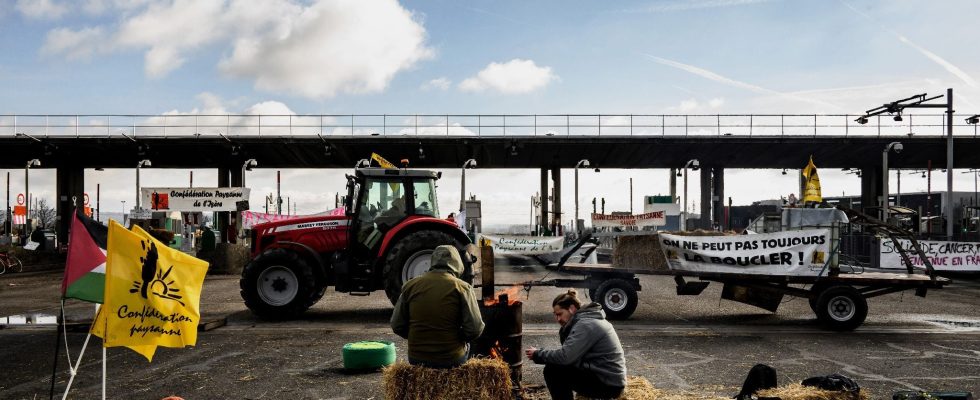The threat of a mobilization of the agricultural world weighs once again. The unions, including the FNSEA, say this unequivocally. “The farmers have never given up. Everyone said: we are ready to leave again if the work carried out does not meet expectations, which are very high”, declared Arnaud Rousseau on the morning of TF1 this morning, a few hours before a meeting with Gabriel Attal in Matignon. “The interest of this meeting with the Prime Minister is to be able to take stock, to work on very concrete measures, since we are halfway, after the announcement of emergency measures and (before ) the Agricultural Show which will take place in eleven days,” said the cereal producer.
Referring to the numerous announcements from the government, which has already put more than 400 million euros in emergency measures on the table, Arnaud Rousseau indicated: “We can see that everyone is at work” and “if we don’t had not put this pressure on, we wouldn’t be here.”
Meet at Matignon then at the Elysée
Ten days after the mobilization, the Prime Minister will receive the union leaders this Tuesday at 4:30 p.m., according to Matignon, in the company of the Minister of Agriculture Marc Fesneau and the new delegate minister, Agnès Pannier-Runacher. For his part, Emmanuel Macron will receive the Rural Coordination and the Peasant Confederation on Wednesday, before the FNSEA and the Young Farmers “next week”. As before each Agricultural Show, specified the Elysée.
The opening on February 24 of this traditional meeting between France’s farmers and the political world must occur as the executive tries to avoid the resumption of a movement suspended on February 1 after new announcements from the government. After two weeks of road blockages and sometimes tumultuous actions, the demonstrators broke camp following this third round of announcements, covering subjects as diverse as pesticides, farmers’ retirements, the simplification of standards and aid for livestock breeding or organic farming. But the unions do not intend to reduce the pressure.
A law project
In addition to the Matignon meetings, the two ministers responsible for Agriculture “will see each of the trade union organizations during the week”, in particular to discuss the bill on the renewal of generations, it was specified on Monday in the cabinet of Marc Fesneau. This text, postponed to be enriched according to the government, should be presented to the Council of Ministers “at the end of February” for a vote “by June”, the same source said.
On the local level, meetings “took place in all department prefectures” to “look at local decrees” and “put forward proposals for administrative simplification”. Among the stinging subjects, both for farmers and environmental defenders, is also the monitoring of pesticide use, put back on the table on Monday. Eight environmental NGOs announced that they had left a meeting of the Strategic Orientation and Monitoring Committee (Cos) of the Ecophyto plan, which was held at the Ministry of Agriculture, with the government, elected officials and representatives of farmers and the industry.
This plan, which aims to halve the use of pesticides by 2030 (compared to 2015-2017), was suspended by Gabriel Attal “while it takes time to put in place a new indicator” which would replace Nodu, main French measuring tool. A decision which satisfied the majority agricultural unions and dismayed environmental associations.
In addition, the European Commission adopted this Tuesday, for the year 2024, a partial exemption from the fallow obligations provided for by the Common Agricultural Policy (CAP), a key demand of recent agricultural protests. Thus, to receive aid from the new CAP, which came into force at the start of 2023, farmers must normally respect agro-environmental criteria, in particular leaving at least 4% of arable land fallow or non-productive areas (hedges, groves, ponds). …).
From now on, farmers will be able to receive aid if they reach at least 4% by adding not only any fallows and non-productive areas but also intermediate or nitrogen-fixing crops (lentils, peas, etc.) without the use of phytosanitary products. The Commission had initially proposed a threshold of 7% at the end of January instead of the 4% finally adopted. “There have been some changes following negotiations with member states, the logic being to offer more flexibilities to our farmers,” explained a spokesperson for the European executive, Olof Gill, on Monday.
